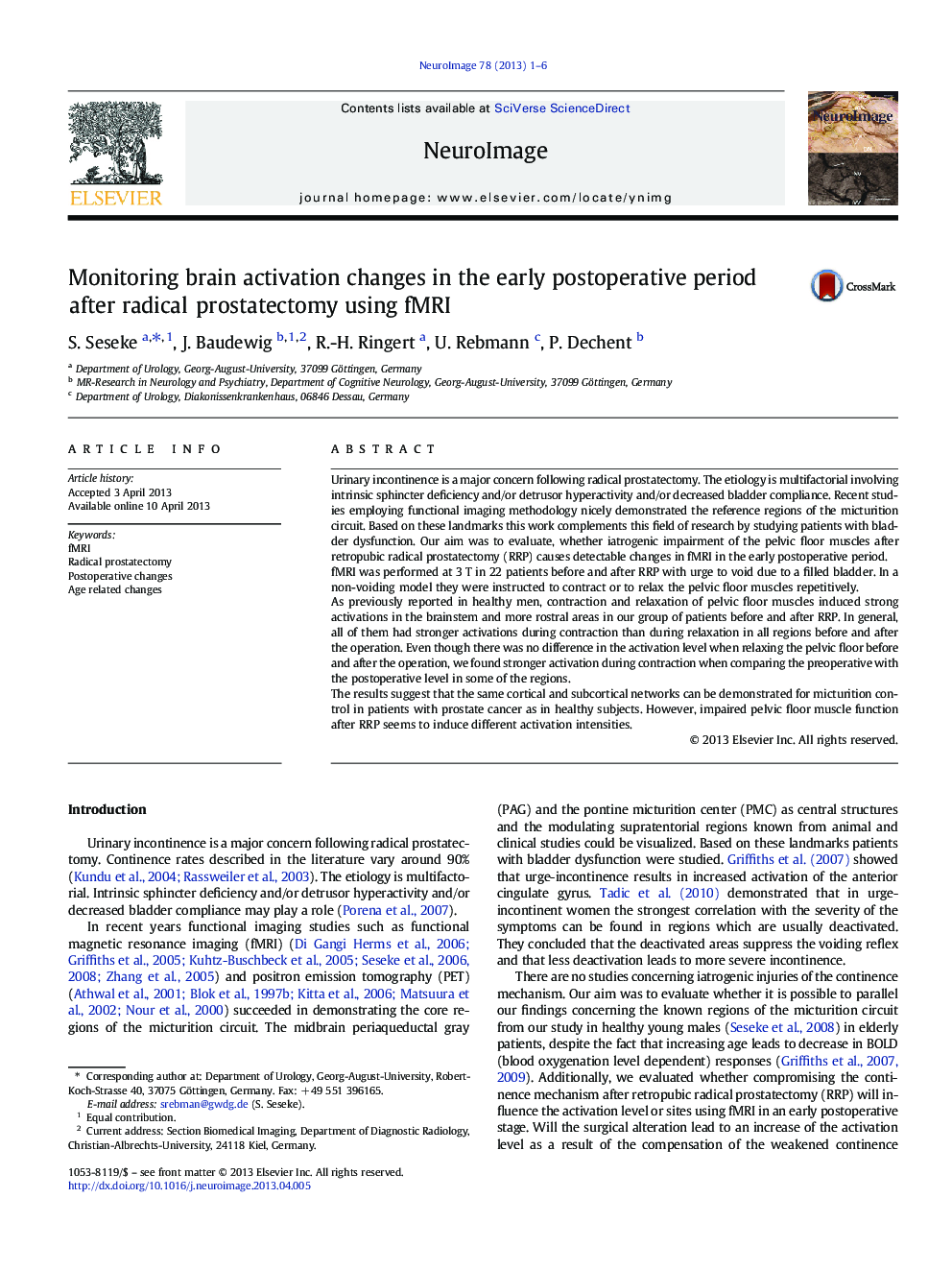| کد مقاله | کد نشریه | سال انتشار | مقاله انگلیسی | نسخه تمام متن |
|---|---|---|---|---|
| 6029194 | 1580926 | 2013 | 6 صفحه PDF | دانلود رایگان |

- We evaluated the fMRI response in patients prior to and after RRP.
- Regions previously identified in healthy volunteers could be seen in the patients.
- We noted lower peak activation, probably attributed to age-related changes.
- Postoperative changes in the activation level could be demonstrated.
- Disturbances of the afferent and efferent innervation may result in those changes.
Urinary incontinence is a major concern following radical prostatectomy. The etiology is multifactorial involving intrinsic sphincter deficiency and/or detrusor hyperactivity and/or decreased bladder compliance. Recent studies employing functional imaging methodology nicely demonstrated the reference regions of the micturition circuit. Based on these landmarks this work complements this field of research by studying patients with bladder dysfunction. Our aim was to evaluate, whether iatrogenic impairment of the pelvic floor muscles after retropubic radical prostatectomy (RRP) causes detectable changes in fMRI in the early postoperative period.fMRI was performed at 3Â T in 22 patients before and after RRP with urge to void due to a filled bladder. In a non-voiding model they were instructed to contract or to relax the pelvic floor muscles repetitively.As previously reported in healthy men, contraction and relaxation of pelvic floor muscles induced strong activations in the brainstem and more rostral areas in our group of patients before and after RRP. In general, all of them had stronger activations during contraction than during relaxation in all regions before and after the operation. Even though there was no difference in the activation level when relaxing the pelvic floor before and after the operation, we found stronger activation during contraction when comparing the preoperative with the postoperative level in some of the regions.The results suggest that the same cortical and subcortical networks can be demonstrated for micturition control in patients with prostate cancer as in healthy subjects. However, impaired pelvic floor muscle function after RRP seems to induce different activation intensities.
Journal: NeuroImage - Volume 78, September 2013, Pages 1-6